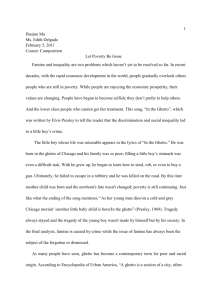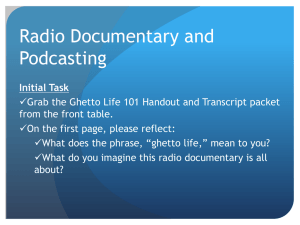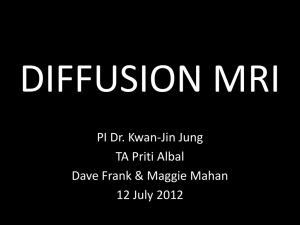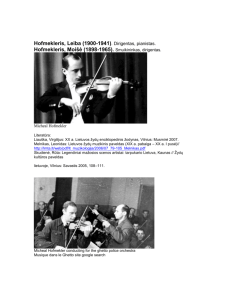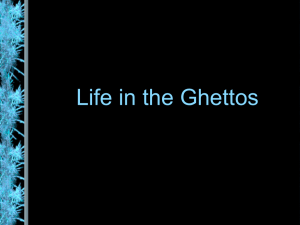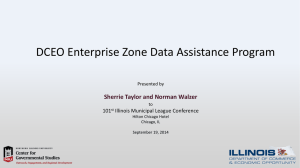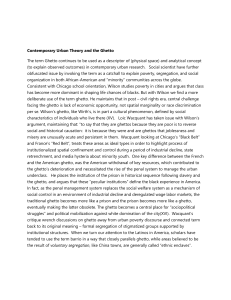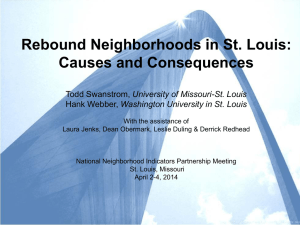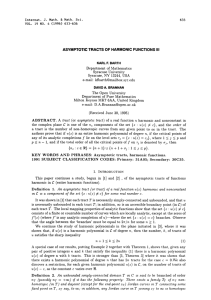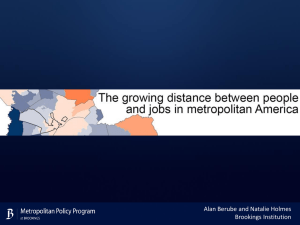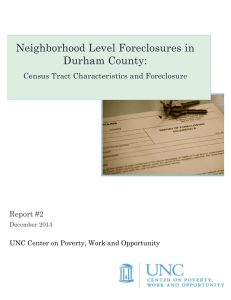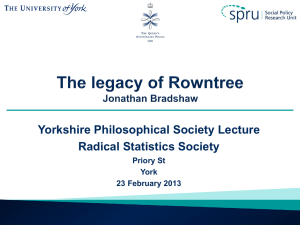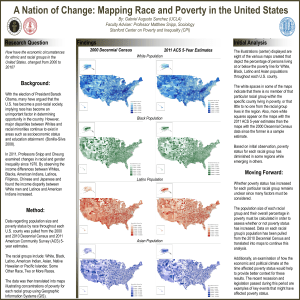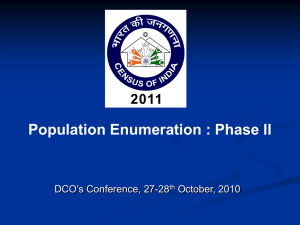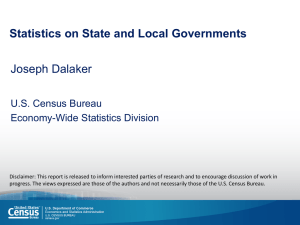Ghetto poverty tracts
advertisement
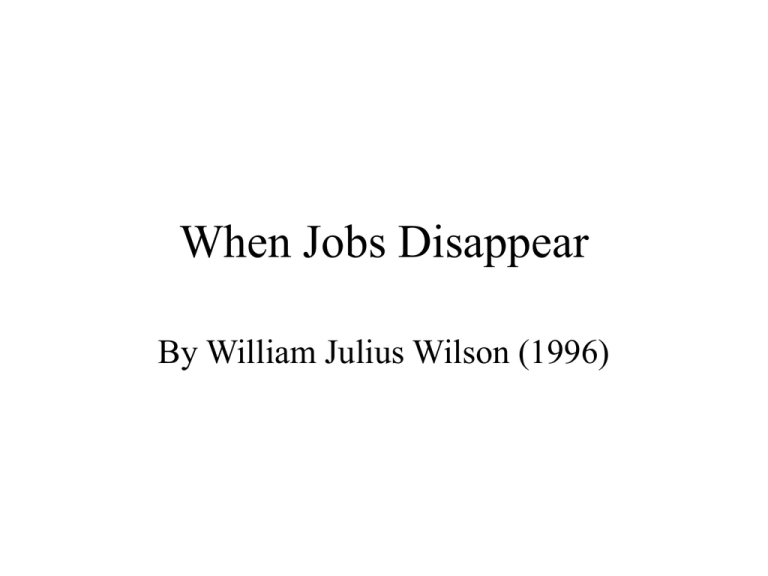
When Jobs Disappear By William Julius Wilson (1996) Definitions • Poverty tracts: Census tracts in which at least 20 percent of residents live below the poverty line. • Ghetto poverty tracts: Census tracts in which at least 40 percent of people are poor. Ghetto poverty on the rise • In major cities, 1 in 7 census tracts fits the description of ghetto poverty. • This is twice as many as in 1970. • About 85% of ghetto poor are minorities. Case study: Chicago • Author interviews residents of ghetto neighborhoods in Chicago’s South and West Sides, of whom three quarters say they’d prefer to live elsewhere. • These were once prosperous, middle-class neighborhoods, until the exodus of jobs to the suburbs began. Why jobs disappear • Shift toward greater automation in manufacturing, which leads to fewer lowskilled jobs • Companies move their facilities to cheaper suburban land, shifting remaining jobs away from inner city. The result of the jobs exodus • As middle-class residents flee, these neighborhoods become increasingly segregated, both socially and economically. • Commerce evaporates, infrastructure crumbles, and unemployment skyrockets. • The vast majority of working-age residents in these neighborhoods are unemployed. Employment levels in the ghetto • In the nation’s largest cities in a typical week in 1990, this chart shows the number of employed people for every 100 people who did not hold jobs. • Ratio of unemployed to employed is 3 times greater in ghetto tracts than in non-ghetto tracts 200 180 160 140 120 100 80 60 40 20 0 Employed persons for every 100 persons not working Ghetto tracts Nonghetto tracts Wilson’s proposed solutions • Better vocational training in high schools. Wilson charges that high-school education is overly focused on college preparation and should take into greater account the needs of people who are unlikely to attend college. • Government intervention to promote the return of low- and medium-skilled jobs to the inner city. Where are the ghetto tracts in Los Angeles? • Mainly clustered between the 110 Freeway and Alameda Street, including much of Downtown. • A number of ghetto tracts west of the 110, including Pico Union and area around USC. • A few in less obvious spots, such as on either side of the 405 in Westwood/Brentwood. Poverty by census tract in L.A. Source: Census Bureau http://factfinder.census.gov/ Rent prices by census tract Source: Census Bureau http://factfinder.census.gov/

